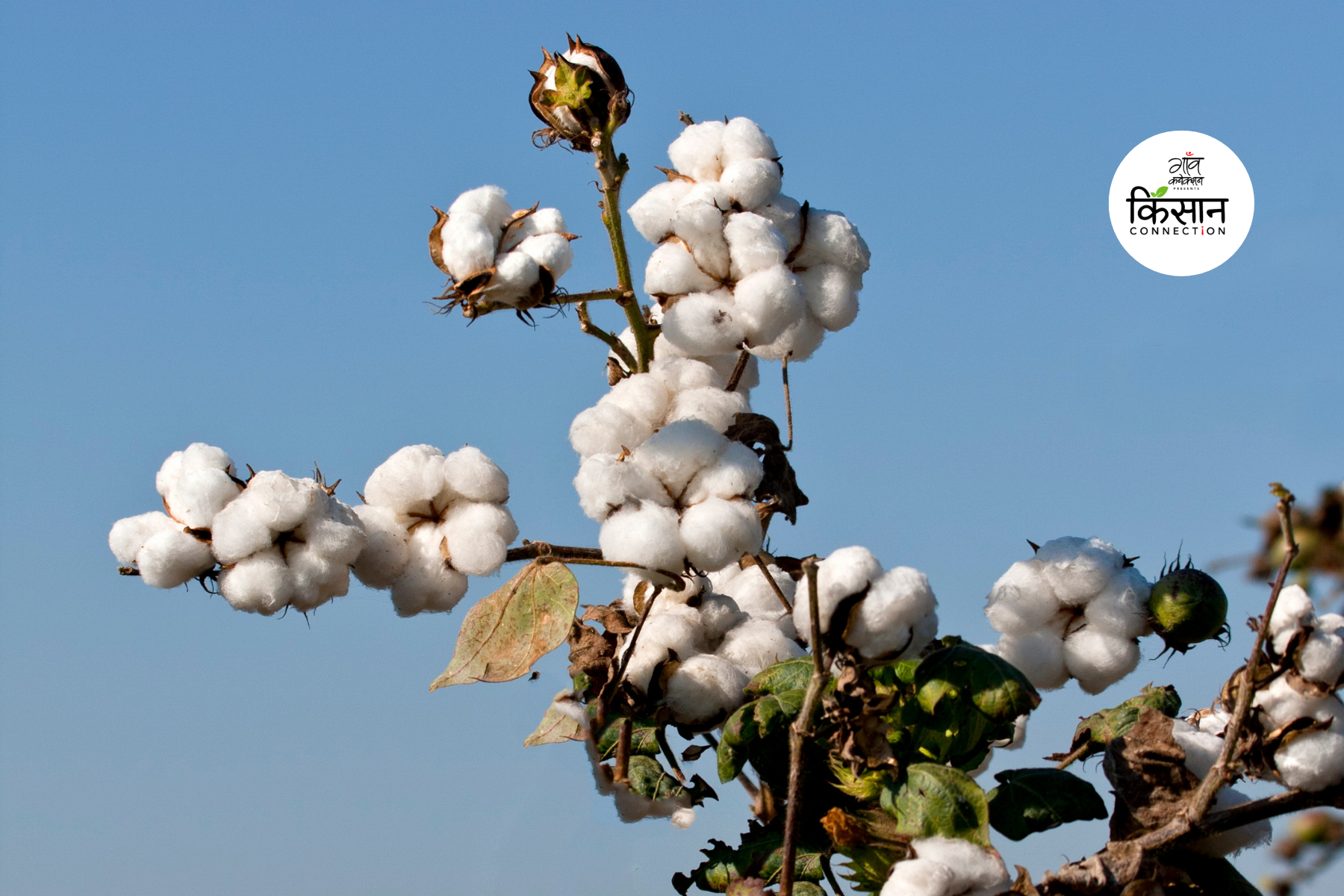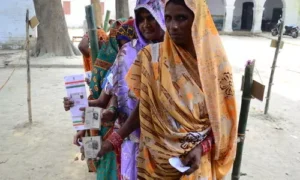Kanha National Park, Madhya Pradesh
Dhimran Bai is 70 years old. But the Baiga tribe woman clearly remembers the rainy morning, 48 years ago, when she, along with her husband Charan Singh Baiga, and their newborn, were forced to abandon their home in Omrai village.
Their village was located inside the Kanha National Park, which was declared a tiger reserve in 1973, prompting relocation of the communities living there. The same year, the Royal Bengal Tiger was declared India’s national animal, and the Indian government launched Project Tiger.
“We had a newborn infant. It was the rainy season when the government drove us out of our home. For years we suffered hunger, foraged in the forests to fill our stomachs and feed our children,” the adivasi woman told Gaon Connection.
The Baiga couple went from village to village to work as labourers, she said, and finally came to Chichrangpur where they now live. Chichrangpur village in Balaghat district is located in the buffer zone of the tiger reserve in Madhya Pradesh.
After years of hardship, the Baiga couple, and some fellow tribal families in Chichrangpur village, have started a new life by cultivating crops and adopting other means of livelihoods.
Since 2019-20, Earth Focus Kanha, a non profit based in Kanha, has been working with the 32 Baiga families in Chichrangpur.
“We started work with the Baiga families with the main aim of stopping the migration of the village inhabitants,” Kishen Puri, programme co-ordinator of the non-profit’s livelihood team, told Gaon Connection. “Education and a steady livelihood were the main problems and so we began to work in the areas with the villages in the buffer zone of Kanha,” he said.
There are three main areas of focus that the non-profit has been working on — stopping migration, finding the communities a source of income within their villages, and making the barren lands productive.
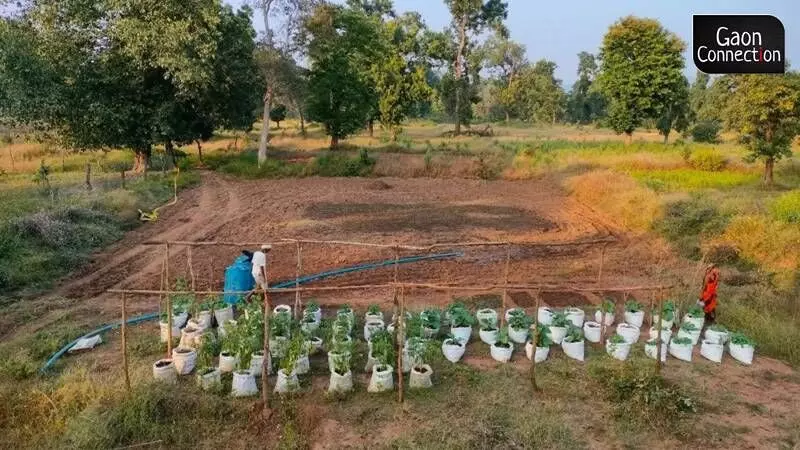
There are three main areas of focus — stopping migration, finding the communities a source of income within their villages, and making the barren lands productive.
It was not easy working with the displaced Baiga families, said Puri. The communities had for years lived in abject poverty, hunger and destitution. The children had nowhere to study and accompanied their parents wherever they migrated in search of work, he added.
Also Read: Tribal districts report more land conflicts compared to other regions in the country
Displaced tribals now practise farming
In 1992, after wandering around, Dhimran Bai and Charan Singh along with 32 other families, settled down in Chichrangpur.
“It was a forested area and we cleared the place up to grow something to eat. It was hard ground, infertile and only fit for one crop of paddy per year, that too if there were sufficient rains,” Charan Singh Baiga said.
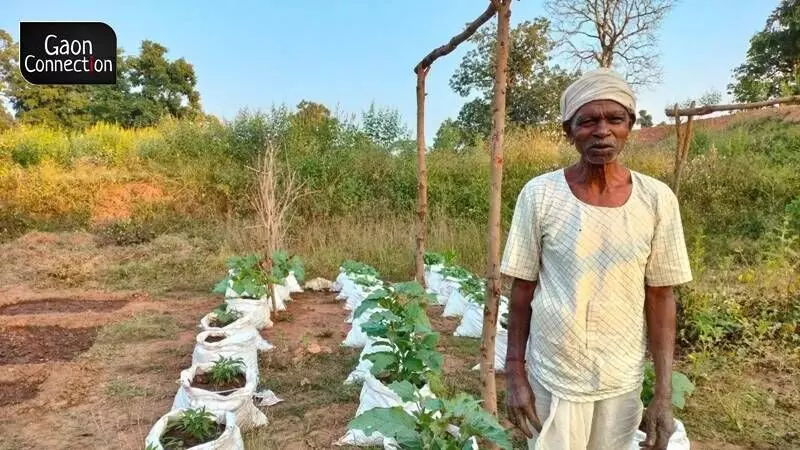
In a novel initiative, the horticulture department, the panchayat department, and the non-profit Earth Focus Kanha have together helped the Adivasi farmers to work on their own farms.
It was tough and many tribal families gave up trying to grow anything and were forced to become migrant labourers, he said. Either entire families moved around from place to place looking for livelihoods, or just the men folk went leaving their families behind.
Godhar Baiga, was also displaced and he along with his family came to Chichrangpura where he settled down. “Along with other Baiga people we cleared some forests and settled down here,” the 67-year-old told Gaon Connection.
The displaced tribals tried to grow millets on the barren land, but wild animals destroyed the crops, Godhar said. “We were forced to look elsewhere in other villages for work,” he added.
But Godhar now grows vegetables in Chichrangpura village. “I am now cultivating peas and chickpeas, besides vegetables,” the Baiga tribal said. The farmers are also cultivating mustard, turmeric, ginger, and millets for the first time, he added. While many of them grow produce for their own consumption, whatever is extra, they are able to sell.
According to Godhad, he owned 20 acres of land in the core area of Kanha before he was displaced, and now he has about five acres in Chichrangpur.
Also Read: Madhya Pradesh: Protesting tribal farmers stop construction of Runj dam; demand compensation
“We are enabling them to start agricultural practices by connecting them to government schemes, providing them with good quality seeds and ensuring they have pumps to irrigate their fields. We are also training them to make their own fertilisers and pesticides,” the Earth Focus programme coordinator Puri said.
The non-profit has been helping the tribal inhabitants with paperwork like filling out forms, making applications, applying for schemes and so on. It also keeps them abreast of any new government schemes they are eligible for.
It procures saplings from the horticulture department for them, procures seeds from the Krishi Vigyan Kendras, and gives them training on making their own fertilisers and pesticides, from natural resources such as cow dung, etc. The farmers are being encouraged to join mainstream agriculture practices.
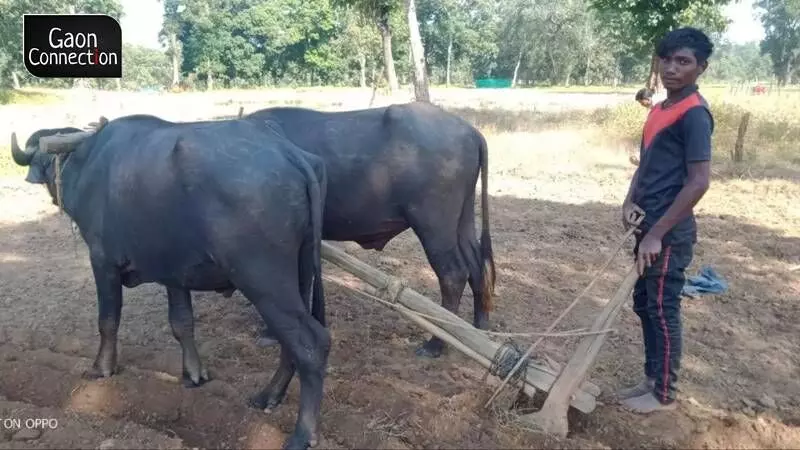
“We are trying to restore the environment the adivasis lost when they were displaced. We are helping the tribal inhabitants plant trees and shrubs in their barren lands,” Vipul Gupta, founder of Earth Focus, explained to Gaon Connection.
According to him, the adivasis got permission from the forest department to do farming in Chichrangpura, which falls in the buffer zone of the Kanha Tiger Reserve.
Other means of livelihoods
In a novel initiative, the horticulture department, the panchayat department, and the non-profit Earth Focus Kanha have together helped the Adivasi farmers to work on their own farms under the MGNREGA (Mahatma Gandhi National Rural Employment Guarantee Act), through which they will earn a steady income.
Two members from each of 12 families in Chichrangpura are benefitting from the MGNREGA scheme, from July 2022. “So far we have found work for 15 days under MGNREGA and each farmer has made Rs 2,800 from that,” said Charan Singh.
Meanwhile, a month ago, along with the horticulture department, the agriculture department and the National Bamboo Mission, the adivasi farmers of Chichrangpura planted nearly a thousand bamboo saplings on 30 per cent of their allotted land. This is to create a natural barrier to ensure a natural fencing to protect their land, and also eventually become a source of revenue.
“Our intention is not charity, but to empower the communities to fend for themselves and start living a life of dignity and self worth and continue to do so,” Vipul Gupta said.
SK Singh, field director of Kanha Tiger Reserve, told Gaon Connection that after the tribal people were displaced, as a compensation, the Adivasis were given one acre to four acres of land to live on and practise agriculture.

Since 2019-20, Earth Focus Kanha, a non profit based in Kanha, has been working with the 32 Baiga families in Chichrangpur.
According to Charan Singh Baiga, that compensation came in 2009, after years of wandering around. Under the Forest Rights Act of 2006, he got a van adhikar patta of 1.565 hectares (approximately five acres of land) in Chichrangpura. “In the core area of Kanha, I had 80 acres of land. And, we had our own pond from where we drew water for irrigation,” he said. Some adivasi families got four acres of land, some seven and so on, he added.
According to S Bhonde of Balaghat-based Ekta Parishad, which works for the rights of Adivasi communities, “When the tribal inhabitants were displaced, in 1973-74, each of the villages that were moved out, got only an acre of land to live on temporarily. Even today the inhabitants of five or six of the displaced villages are homeless and landless.”
According to the National Tiger Conservation Authority of the central government, “there were as many as 45 villages in the old National Park area (now notified as the core/critical tiger habitat). Over the years, 32 forest villages have been voluntarily relocated outside the core area making the additional habitat available for the wild ungulates…”
Meanwhile, to make its tiger reserves free from human disturbance, the Madhya Pradesh government has sought Rs 2,500 crore from the central government to relocate the existing 89 villages from the core and buffer zones of its five tiger reserves.




